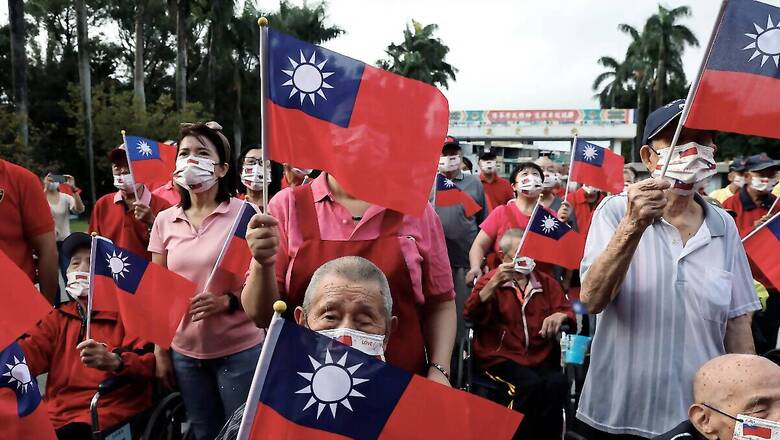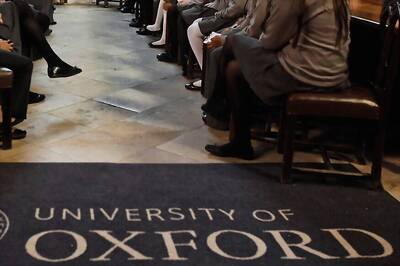
views
Taiwan has hit back at China after it expressed outrage against an Indian TV channel for broadcasting an interview with Foreign Minister Joseph Wu of the democratically elected island, which Beijing considers as its territory despite decades of separate rule.
In an exclusive interview with NewsX released on February 29, Wu raised concerns over China’s military pressure and its growing assertiveness in the South China Sea. Taiwan’s longest-serving foreign minister, who plans to vacate his post in the coming months, said they are working hard to ensure bilateral relations are “moving forward” in every way.
In a statement issued on March 1, the Chinese embassy in India said the interview provided “a platform for advocating Taiwan independence and disseminating false information,” which it deemed a serious violation of the one-China principle. This principle asserts that there is only one China in the world, Taiwan is part of China, and the government of the People’s Republic of China is the sole legal representative. The Chinese embassy stressed that the one-China principle is widely accepted and forms the political foundation for diplomatic ties between China and countries worldwide.
Despite “separatist forces” advocating for Taiwan’s independence, historical and legal facts cannot be altered, the Chinese embassy claimed. In the statement, the Chinese mission also urged “Indian media to uphold China’s sovereignty and territorial integrity.” Responding strongly to Chinese criticism, the Taiwan Foreign Office said, “Neither India nor Taiwan is part of the PRC and we’re not its puppets. “We’re both democracies with free and vibrant presses that can’t be dictated to. Beijing should worry about its own economic slump, not bullying its neighbours,” the statement added.
This row came less than a month after the Taipei Economic and Cultural Center in India and the India Taipei Association (ITA) signed a memorandum of understanding (MoU) on labour cooperation. India-Taiwan relations, while unofficial, have gradually strengthened in recent years, driven by economic, strategic, and cultural factors. Despite not having formal diplomatic ties, both sides have sought to enhance bilateral trade and investment through various mechanisms. Taiwan’s technological expertise in areas like chipmaking aligns with India’s goals of promoting innovation and digitalisation.


















Comments
0 comment